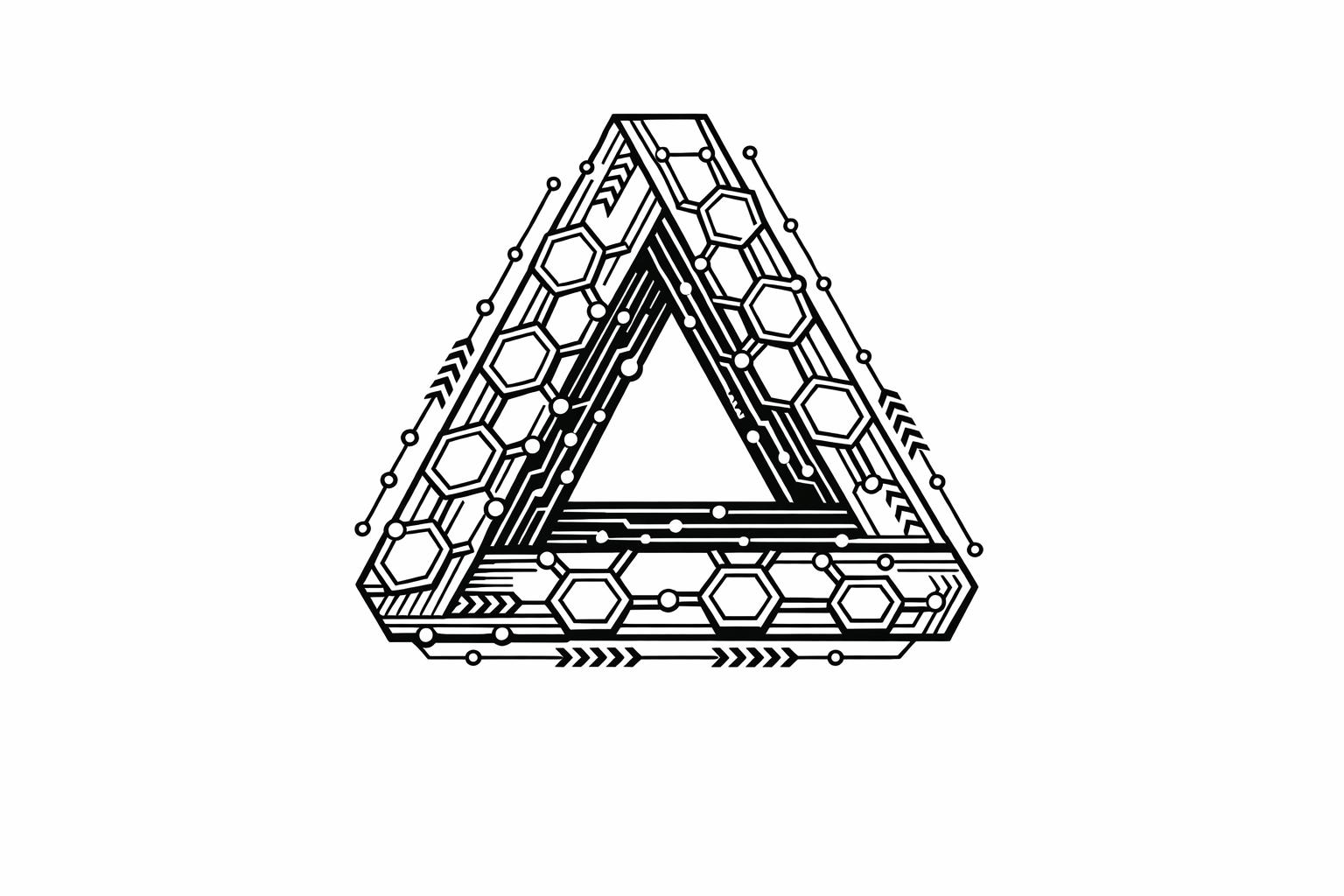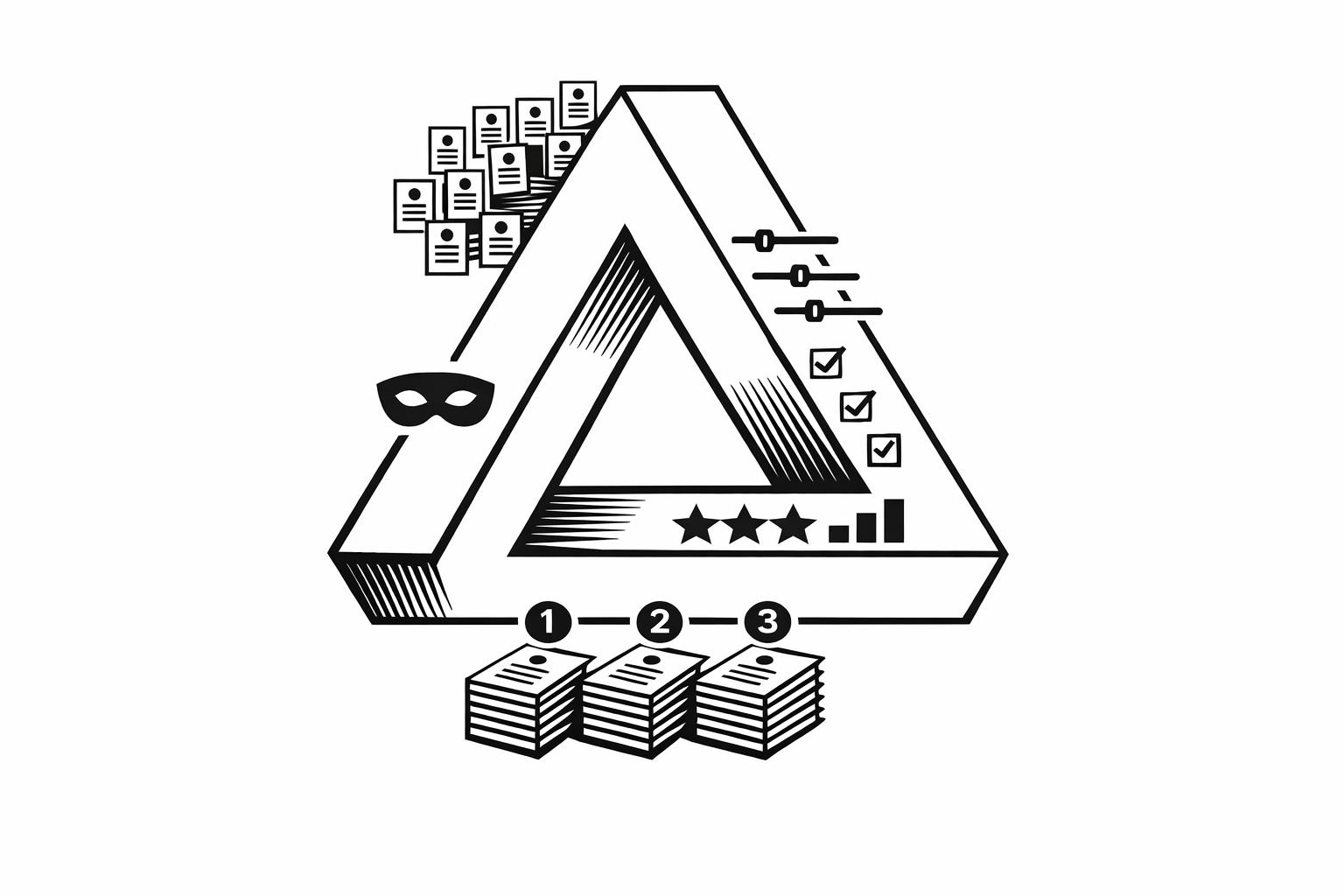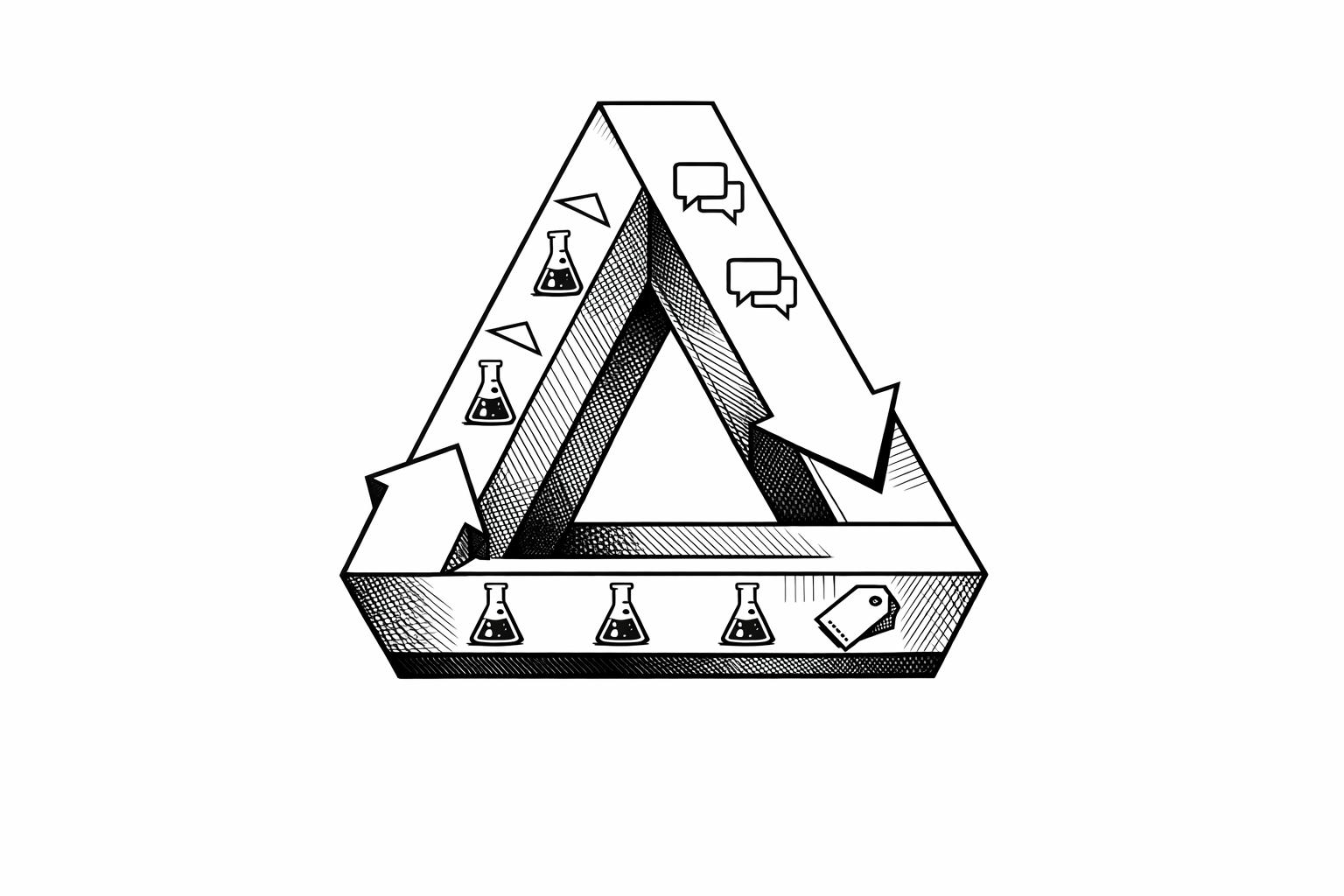Top AI Tools for Product Lifecycle Management
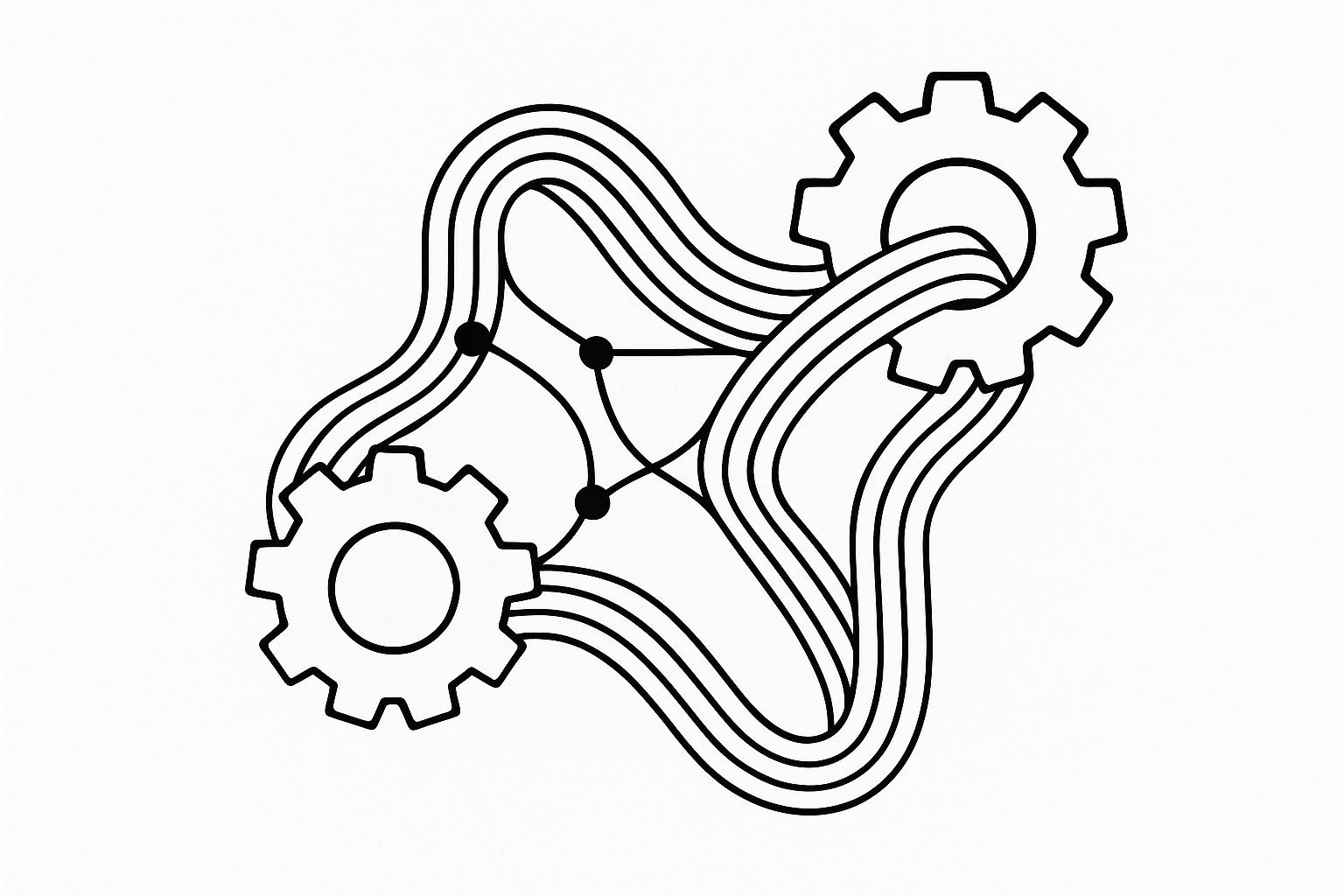
AI is transforming Product Lifecycle Management (PLM). From reducing development costs to improving decision-making accuracy, businesses are leveraging AI tools to optimize product development and operations. Over 80% of global companies now integrate AI into their processes, with manufacturers prioritizing AI-ready PLM systems in 2025 budgets.
This article highlights 11 leading AI-powered PLM tools shaping U.S. businesses, such as God of Prompt, Siemens Teamcenter, and PTC Windchill, among others. These tools improve collaboration, automate workflows, and enhance compliance tracking. Key benefits include faster prototyping, better resource allocation, and fewer quality issues. Below are the main tools covered:
- God of Prompt: Extensive AI prompt library for communication and documentation.
- Siemens Teamcenter: Centralizes data with AI-driven search and digital twins.
- PTC Windchill: Generative AI for actionable insights and part rationalization.
- Dassault Systèmes ENOVIA: Predictive analytics and real-time collaboration.
- Autodesk Fusion Lifecycle: Cloud-based AI for workflow efficiency.
- Oracle Agile PLM: AI-powered documentation and workflow automation.
- Aras Innovator: Open-source platform with flexible AI-powered tools.
- Propel PLM: Salesforce-integrated solution with real-time dashboards.
- Omnify Empower PLM: Simplifies manufacturing workflows.
- SAP PLM: AI-driven analytics for change management and quality assurance.
- Siemens Solid Edge PLM: Cloud-based AI integration for engineering teams.
These tools cater to various business sizes and needs, from small teams to large enterprises. Below is a quick comparison to help identify the best fit for your organization.
The State of AI in Today's PLM Solutions | EP 97
Quick Comparison
| Tool | Key Features | Pricing | Best For |
|---|---|---|---|
| God of Prompt | 30,000+ AI prompts, lifetime updates | Free/$150 lifetime | Small/medium businesses |
| Siemens Teamcenter | AI search, digital twins | Varies by deployment | Enterprise manufacturers |
| PTC Windchill | Generative AI, part rationalization | Not disclosed | Engineering teams |
| Dassault ENOVIA | Predictive analytics, compliance tools | Not disclosed | Aerospace, automotive |
| Autodesk Fusion | Cloud-native, workflow automation | Subscription-based | Design teams |
| Oracle Agile PLM | AI workflows, ERP integration | Not disclosed | Regulated industries |
| Aras Innovator | Open-source, AI data management | Tiered plans | Flexible business needs |
| Propel PLM | Salesforce-native, real-time dashboards | Subscription-based | Salesforce users |
| Omnify Empower PLM | Workflow automation for manufacturing | Not disclosed | Manufacturers |
| SAP PLM | Predictive analytics, AI compliance | Integrated with SAP | Large enterprises |
| Solid Edge PLM | AI machining, cloud-based collaboration | Not disclosed | Engineering teams |
AI is reshaping PLM. Whether you're a small business or a global enterprise, these tools can help streamline workflows, improve collaboration, and reduce costs. Choose the one that aligns with your goals and industry requirements.
1. God of Prompt
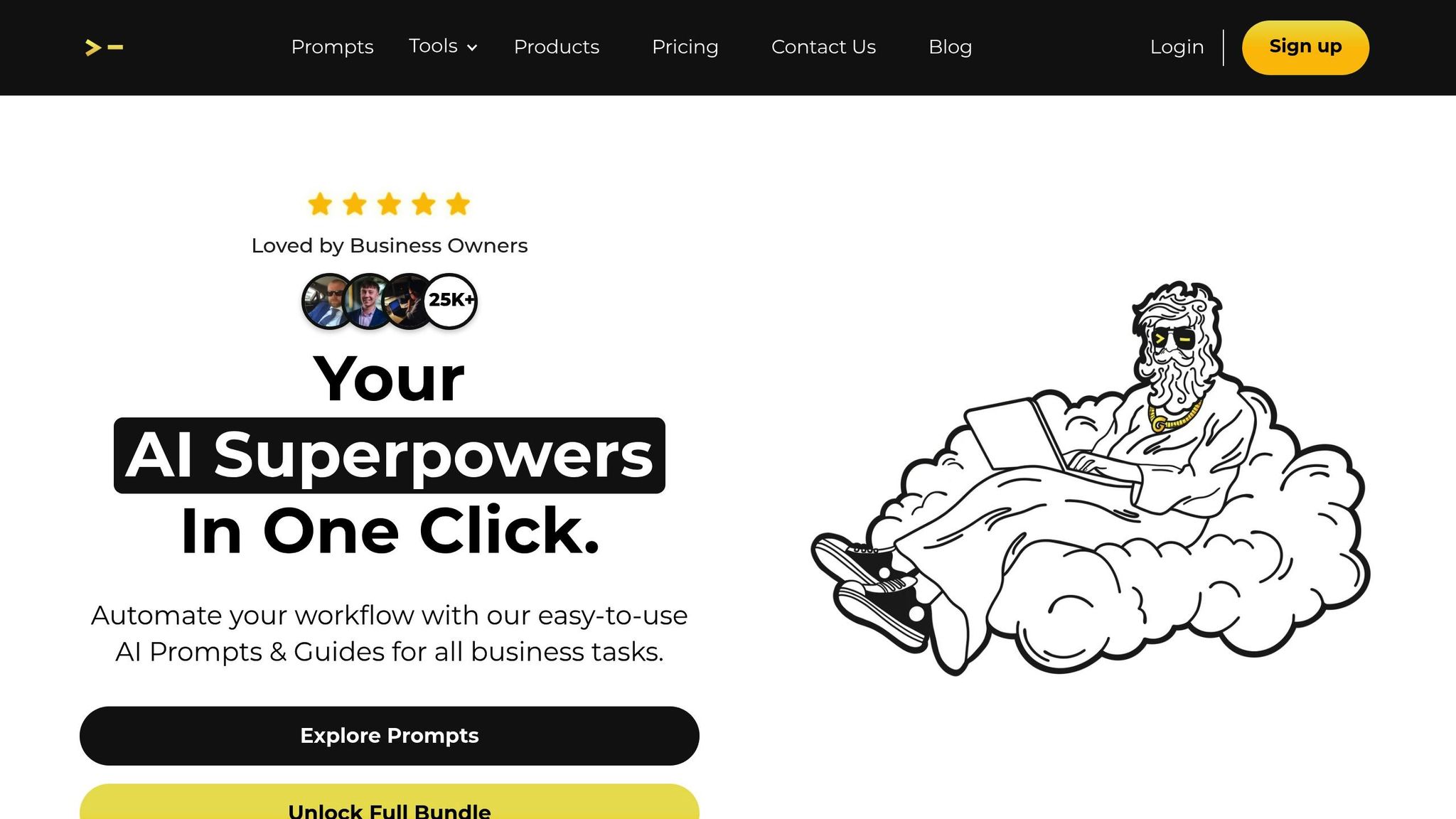
Unlike many traditional PLM tools that stick to conventional workflows, God of Prompt takes a fresh approach by leveraging AI-powered prompts to simplify communication and documentation within product lifecycle management. With a library of over 30,000 AI prompts designed for platforms like ChatGPT, Claude, Midjourney, and Gemini AI, this tool brings a new level of efficiency to PLM processes.
AI-Powered Tools for PLM Teams
The standout feature of God of Prompt is its extensive prompt library, tailored to enhance how PLM teams interact with AI systems. Among its offerings are over 2,000 ChatGPT mega-prompts, which can be customized for tasks ranging from brainstorming product concepts to drafting final documentation. These prompts are particularly useful for generating technical specs, crafting product requirement documents, and automating repetitive communication tasks.
For visual tasks, the platform includes 10,000+ Midjourney prompts. These are designed to accelerate prototyping, create product mockups, and even generate marketing materials. This integration helps bridge the gap between technical details and polished, market-ready presentations.
Streamlined Collaboration and Automation
God of Prompt makes cross-department communication more efficient by offering pre-built AI prompts that ensure consistency across teams. From marketing to SEO to productivity workflows, the platform provides tools that align with the needs of modern PLM systems. For organizations requiring more tailored solutions, higher-tier plans allow for unlimited custom prompts, enabling teams to create templates that fit their specific methodologies.
The platform also integrates seamlessly with Notion, creating a centralized workspace where AI-generated content can live alongside traditional PLM documentation. This setup is particularly useful for distributed teams managing complex product lifecycles, where frequent updates and version control are essential.
Simple and Transparent Pricing (USD)
God of Prompt offers a range of plans to fit different needs, with both lifetime and monthly subscription options. For those just starting with AI in PLM, the Free plan provides access to 1,000+ ChatGPT prompts and 100+ Midjourney prompts, making it a great option for small teams.
For more advanced needs, the MAX Complete AI Bundle is available at $150.00 for lifetime access or $15.00 per month, with a 7-day free trial included. This plan unlocks the entire library, unlimited custom prompts, and lifetime updates, offering a cost-effective alternative to traditional PLM software.
Specialized bundles are also available:
- Plus ChatGPT Bundle: Focused on text-based tasks, priced at $97.00 lifetime.
- Plus Midjourney Bundle: Ideal for visual development, priced at $67.00 lifetime.
All plans include a 7-day money-back guarantee, providing teams with a risk-free way to explore how AI can enhance their PLM workflows.
2. Siemens Teamcenter
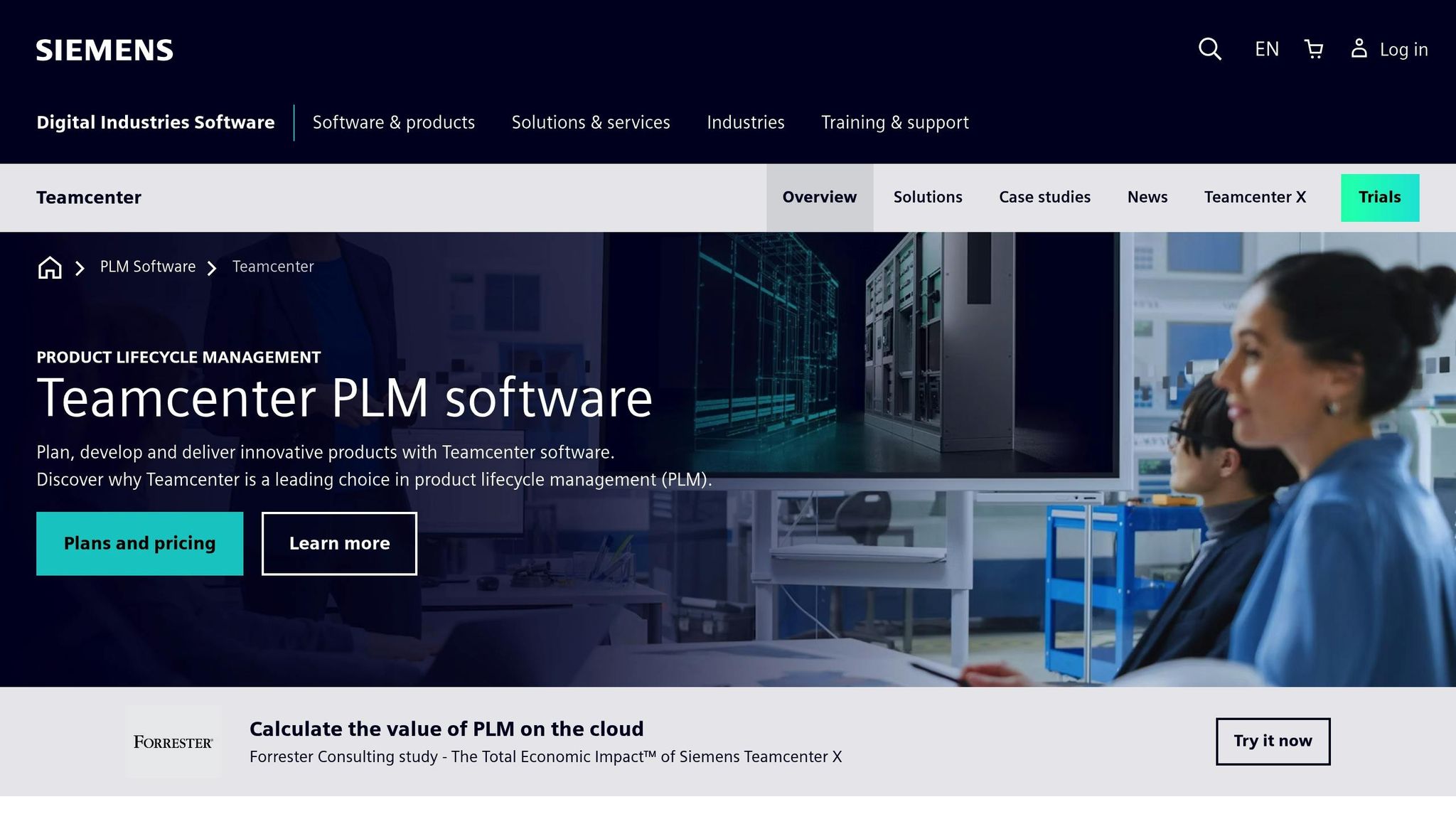
Siemens Teamcenter is a standout PLM (Product Lifecycle Management) platform that applies AI to streamline and enhance every phase of the product lifecycle, from initial design to full-scale manufacturing.
AI-Powered Tools for Smarter PLM
Teamcenter employs AI to sift through product data and identify opportunities for optimization. Its advanced search capabilities allow engineers to find exactly what they need by recognizing the context and relationships between components and documentation. The platform also integrates digital twin technology, creating real-time virtual models that help refine designs and guide maintenance decisions.
Seamless Collaboration and Workflow Automation
Teamcenter centralizes data, fostering real-time collaboration across teams. It automates workflows like design change approvals, ensuring updates from various CAD tools are synchronized smoothly throughout the organization. This streamlining of processes reduces errors and improves efficiency.
Meeting Compliance and Integration Needs
For industries where safety and compliance are critical, Teamcenter provides tools to help meet regulatory requirements, maintain audit trails, and manage changes with precision. Its change management features ensure all modifications are reviewed and documented properly. Furthermore, Teamcenter integrates with ERP systems, enabling smooth data sharing across departments like manufacturing, procurement, and finance.
Flexible Licensing and Pricing
Siemens Teamcenter offers a flexible licensing model tailored to different user roles and organizational requirements. Pricing depends on the features and scale of deployment, with options for both on-premise and cloud-based setups. Many organizations have reported a strong return on investment, citing improved collaboration and reduced time-to-market as key benefits.
Next, take a look at how PTC Windchill redefines PLM with its own AI-powered capabilities.
3. PTC Windchill
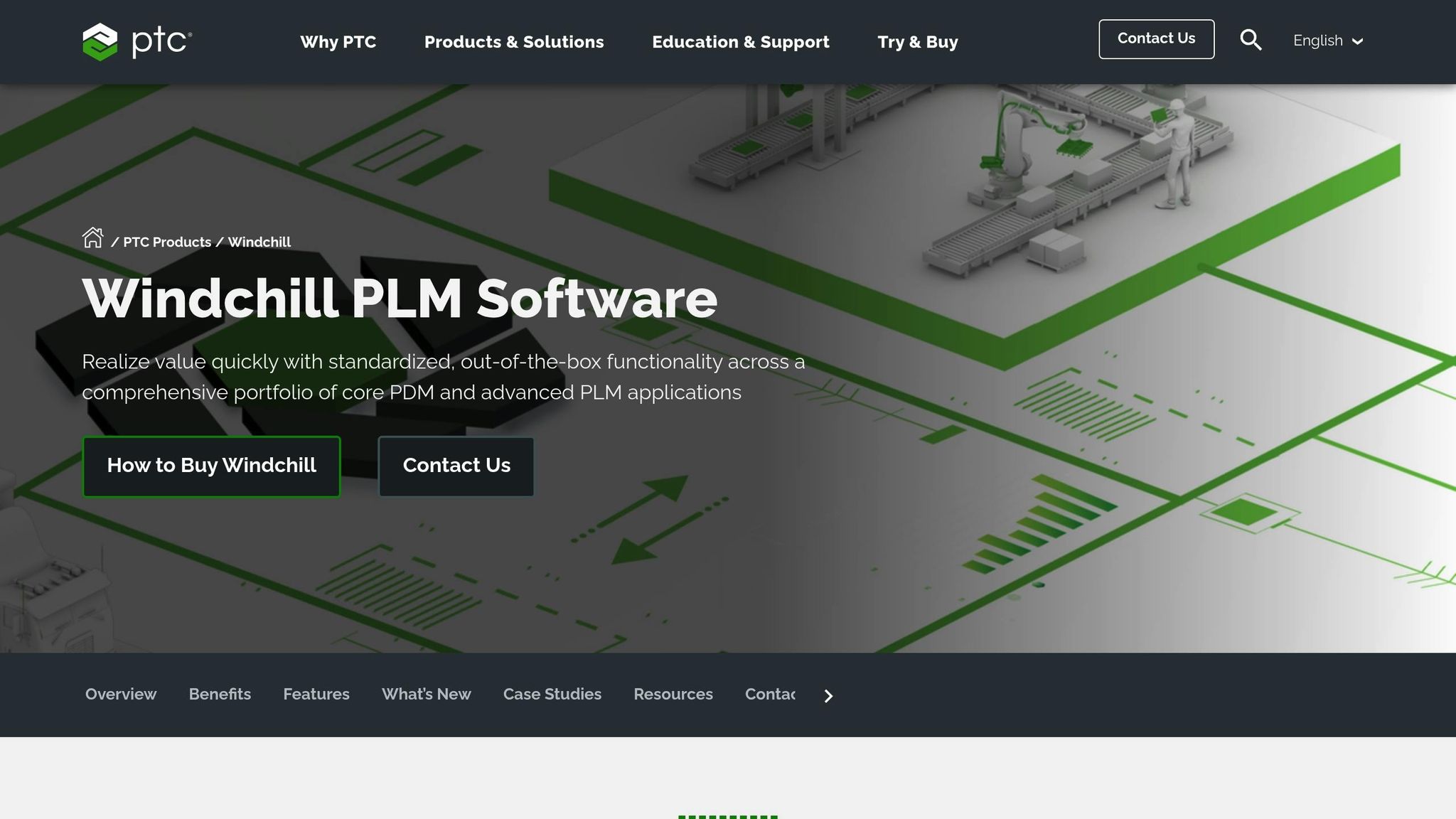
PTC Windchill is reshaping product data management by integrating generative AI, making decision-making faster and workflows more efficient. It serves as a digital hub for all product lifecycle information, empowering engineering teams to boost productivity with AI-driven tools.
AI-Driven Features for PLM
Windchill AI represents PTC's latest leap in generative AI-powered PLM (Product Lifecycle Management) technology. In March 2025, PTC showcased Windchill AI at Hannover Messe 2025, demonstrating how it leverages stored product data to deliver actionable insights and improve decision-making processes.
One standout feature is the Document Vault AI agent, which simplifies complex documents - like technical specifications, requirements, and test results - into actionable insights.
"Big moment for the Windchill, a PTC Technology team! We're previewing Windchill AI at HANNOVER MESSE - our first step toward bringing generative, agentic #AI into the core of #PLM. The focus is simple: help teams get the information they need faster, make better decisions with actionable insights, and stay focused on building great innovative, products."
- Mark Lobo, PTC Technology Team
Another key feature is AI-powered Part Rationalization, which uses machine learning and computer vision technologies refined over a decade. Enhanced by generative AI, this feature minimizes redundant efforts and simplifies product line expansion. These capabilities pave the way for smoother collaboration and more automated workflows.
Collaboration and Workflow Automation
Windchill AI takes static documents and transforms them into actionable insights using conversational interfaces. This automation speeds up routine tasks and advances product development with tools like smart requirements and supplier analytics.
Compliance and Integration Capabilities
Beyond improving decisions, Windchill AI strengthens quality control, risk management, and intellectual property (IP) protection. Intelligent change management analytics ensure better compliance, while part rationalization, reuse, and classification capabilities help reduce costs, including the cost of goods sold (COGS).
"Companies that leverage AI strategically and in ways that impact the business will have an advantage in the marketplace. More specifically, companies that recognize and leverage their product data as a strategic enterprise asset will be able to transform how they design, manufacture, and service their products."
- Steve Dertien, Chief Technology Officer, PTC
Future Developments
PTC is building on Windchill’s current AI strengths by introducing interface updates and expanding capabilities to further optimize PLM processes. Announcements regarding general availability and pricing details for Windchill AI are expected closer to its official launch. The next release, Windchill 13.1.2.0, scheduled for October, will include a modernized home screen with dynamic graph updates and improved table controls, setting the stage for even more AI-driven insights.
These advancements position Windchill as a leader in redefining PLM. Up next, Dassault Systèmes ENOVIA presents its own forward-thinking approach.
4. Dassault Systèmes ENOVIA
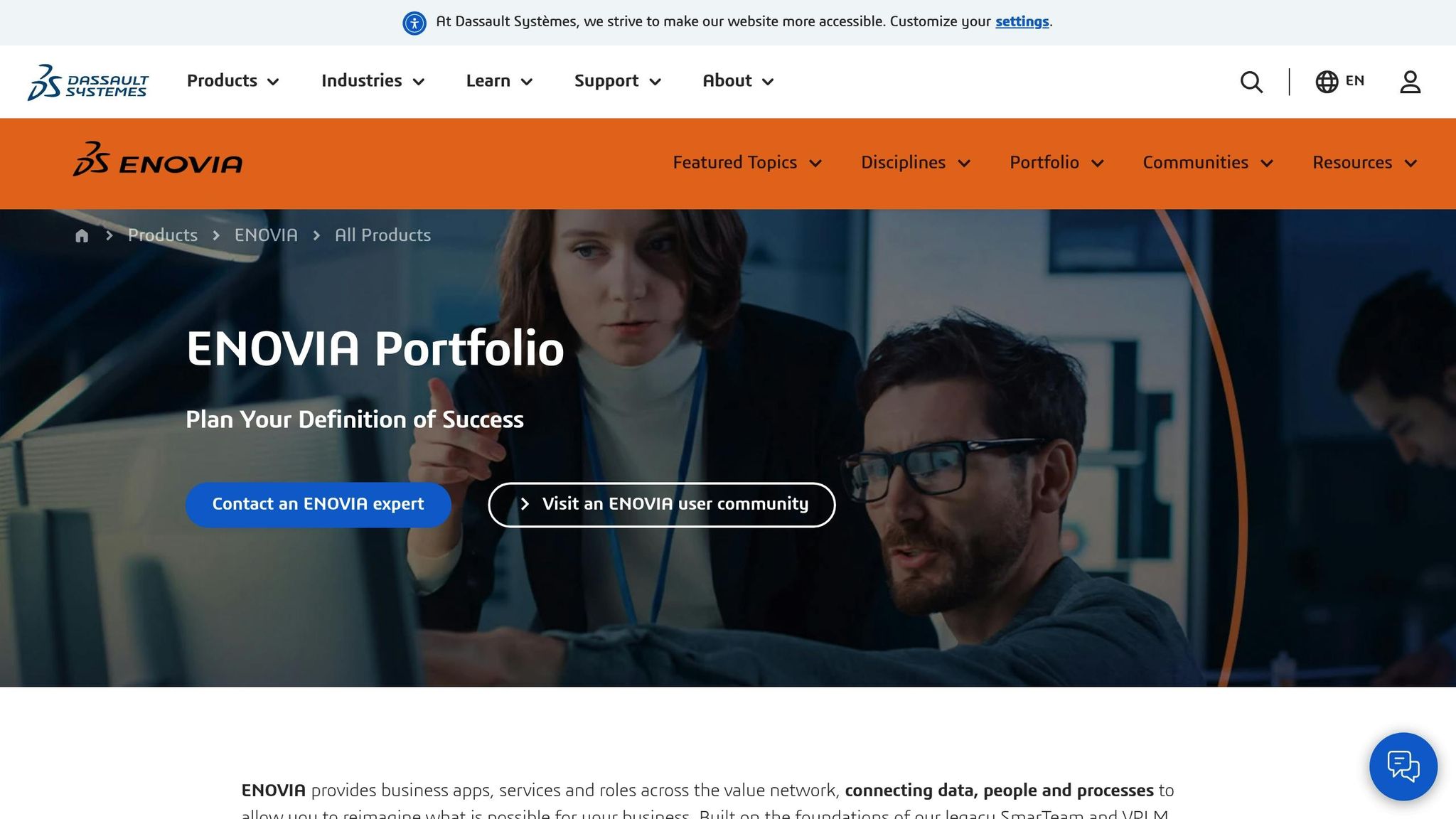
Dassault Systèmes ENOVIA is a collaborative product lifecycle management (PLM) platform powered by the 3DEXPERIENCE platform. Designed to offer enterprise-level PLM capabilities, ENOVIA integrates artificial intelligence to help companies simplify and improve their product development workflows.
AI-Driven Features for PLM
ENOVIA uses artificial intelligence to support smarter decision-making across the entire product lifecycle. Its AI-powered search feature allows users to quickly locate product information and design data by understanding the context and relationships between components. This saves engineers valuable time otherwise spent hunting for information.
Predictive analytics play a key role by analyzing historical data to foresee potential challenges, such as quality issues or supply chain interruptions.
The platform also automates routine tasks like workflow routing and approvals. By learning from user behavior, it suggests efficient development paths, cutting down on manual work and speeding up the time it takes to bring products to market.
Collaboration and Workflow Automation
One of ENOVIA's strengths is its ability to connect teams, no matter where they're located. With real-time collaboration tools, engineers, suppliers, and manufacturing partners can work together seamlessly. Teams can share 3D models, technical drawings, and specifications while maintaining version control and managing access permissions effectively.
The platform’s automated workflow engine simplifies complex approval processes by directing tasks to the right stakeholders at the right time. When design changes occur, ENOVIA immediately alerts all relevant parties and manages the approval process, ensuring the transition is smooth and organized.
Additionally, ENOVIA’s digital continuity features ensure that product data flows seamlessly from concept through manufacturing and into service, reducing the risk of information silos that often plague traditional PLM systems.
Compliance and Integration Capabilities
ENOVIA includes tools to help organizations stay compliant with industry standards and government regulations. Detailed audit trails for product-related activities make compliance reviews easier and more efficient.
Its configuration management capabilities are particularly valuable for industries like aerospace, automotive, and medical devices, where strict traceability is essential. These tools ensure product variants and customizations are accurately tracked and controlled.
ENOVIA also excels at integrating with existing enterprise systems, such as ERP, CRM, and manufacturing execution systems. This creates a unified digital thread that connects all aspects of the product lifecycle, ensuring data consistency and better collaboration across departments.
Up next, Autodesk Fusion Lifecycle takes a cloud-native approach to PLM, offering integrated design tools to further refine product lifecycle management.
5. Autodesk Fusion Lifecycle
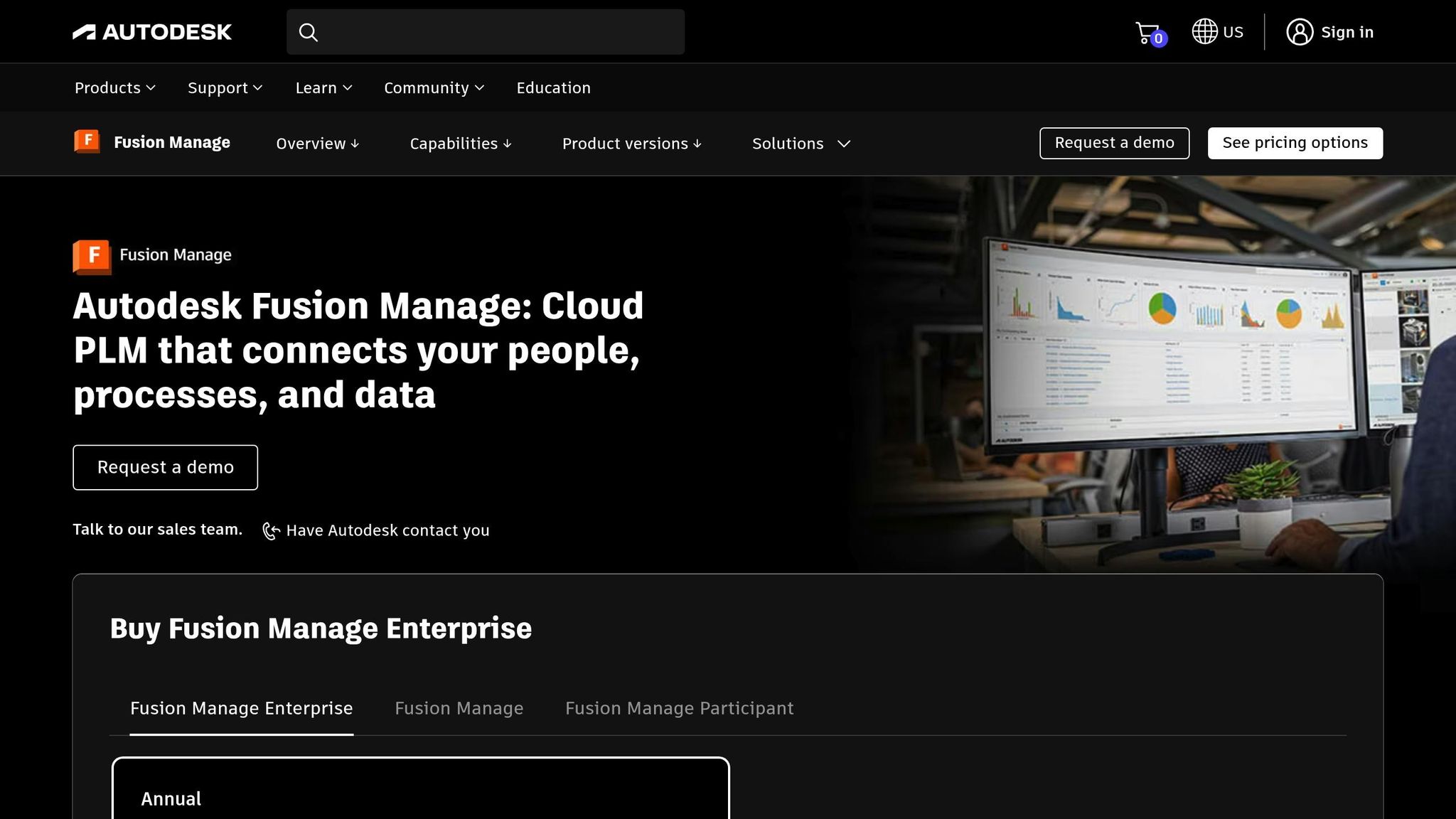
Autodesk Fusion Lifecycle is a cloud-based Product Lifecycle Management (PLM) solution that works seamlessly with Autodesk's design tools. It combines traditional PLM features with AI-driven capabilities to manage products from initial concept through to end-of-life.
AI-Driven Capabilities
Fusion Lifecycle uses AI to simplify data organization and improve workflow efficiency during product development. With machine learning, it can categorize design files, documentation, and project data, making it easier to locate and retrieve information. It also helps identify potential design challenges early on and suggests workflow improvements by analyzing patterns from previous projects.
Collaboration and Workflow Automation
This platform is designed to enhance collaboration among design teams, no matter where they are located. By keeping product data synchronized across multiple locations, it ensures everyone is on the same page. Fusion Lifecycle also automates change management processes, routing change requests through predefined review steps. Its integration with Autodesk tools like Inventor and Fusion 360 ensures consistent data and reduces issues with version control.
Compliance and Integration
For businesses in regulated industries, Fusion Lifecycle offers features like audit trails to help meet compliance requirements. It also provides tools to manage complex bills of materials and integrates with other enterprise systems through APIs. This creates a centralized view of product information, making it easier for teams to work efficiently and maintain oversight.
Pricing and Availability
Autodesk Fusion Lifecycle operates on a subscription model. Pricing varies depending on the chosen package and modules. For detailed pricing information, reach out directly to Autodesk.
6. Oracle Agile PLM
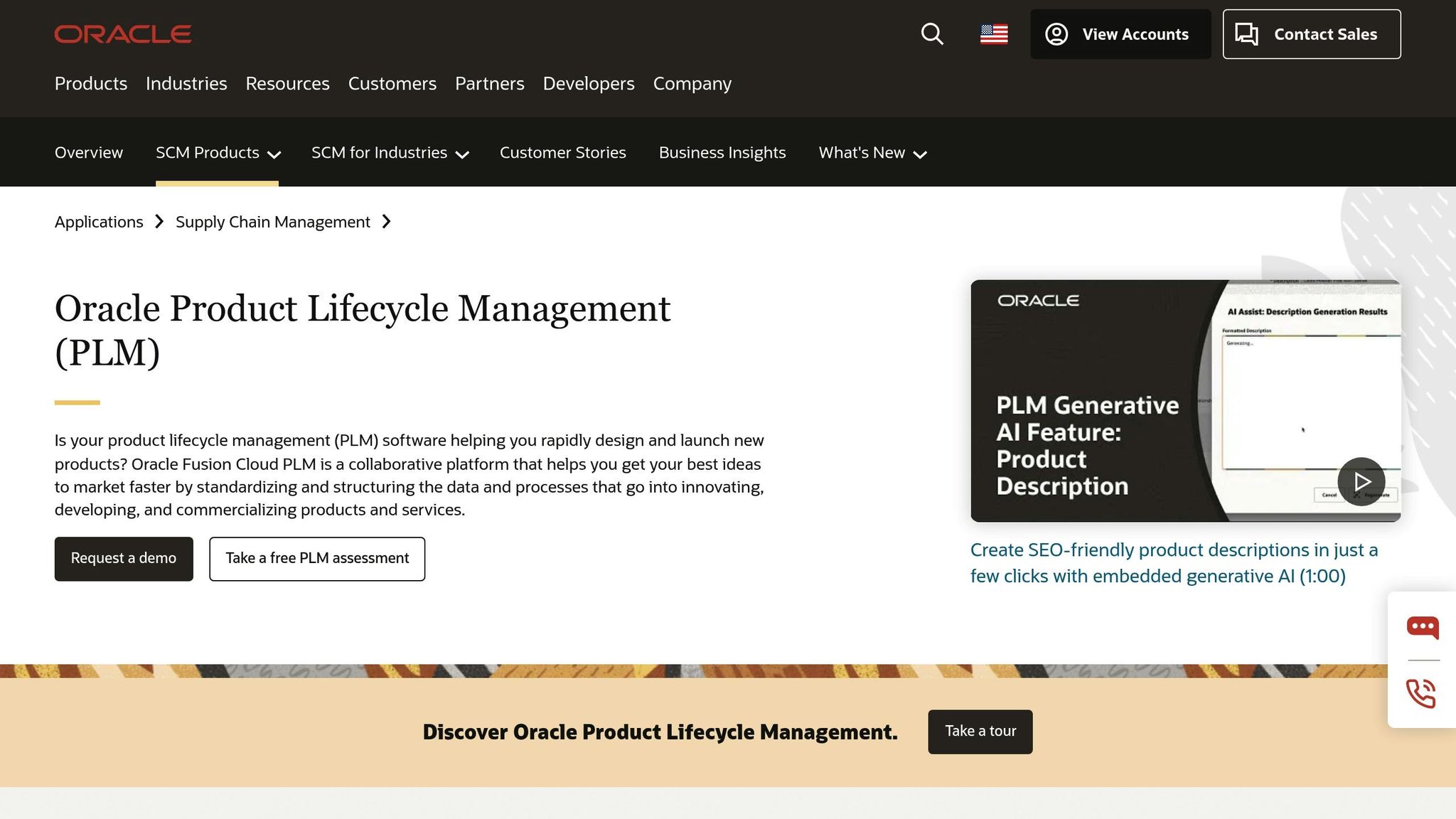
Oracle Agile PLM is a robust enterprise solution designed to manage the entire product lifecycle, from initial concept to final retirement. By blending traditional PLM functionalities with cutting-edge digital tools, it simplifies and enhances product development processes. Its AI-powered capabilities make it a standout choice in today’s fast-paced business environment.
AI-Driven Features
Oracle Agile PLM uses AI to streamline how teams handle product documentation and workflows. With these tools, teams can quickly locate critical information and make informed decisions at every stage of the product lifecycle.
Collaboration and Workflow Automation
This platform takes collaboration to the next level by automating tasks like change requests and approvals. By routing design updates through predefined workflows and providing timely feedback, it keeps everyone - from engineers to executives - on the same page throughout the development process.
Compliance and Integration
For industries with strict regulations, Oracle Agile PLM offers detailed audit trails to help meet compliance requirements. Plus, it integrates seamlessly with major ERP systems and popular CAD tools, ensuring data stays consistent and synchronized across all platforms.
sbb-itb-58f115e
7. Aras Innovator
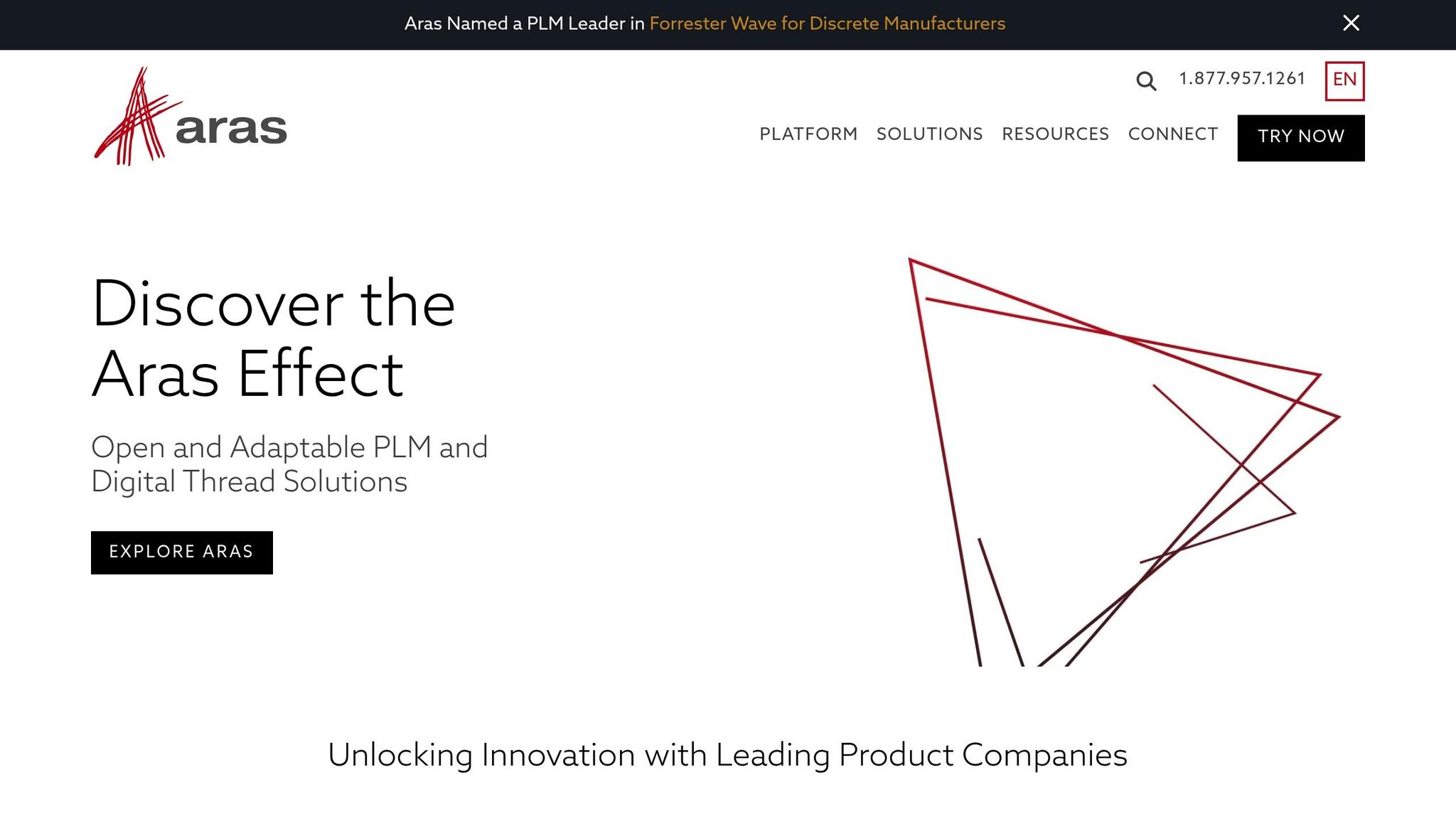
Aras Innovator is an open-source PLM platform designed to blend traditional product lifecycle management with modern AI capabilities. Unlike rigid systems, it uses a model-based architecture that aligns with your business processes, making it a great choice for teams that need flexibility and adaptability.
AI-Powered Tools for Smarter PLM
Aras Innovator incorporates artificial intelligence to simplify data management and enhance search functionality. It automatically tags and organizes documents, while also analyzing historical design patterns to help teams make quicker, more informed decisions during product development.
Seamless Collaboration and Automated Workflows
With its web-based interface, Aras Innovator supports real-time collaboration among engineers, suppliers, and manufacturing teams, no matter where they are. The platform keeps a detailed audit trail of every change, ensuring accountability. Workflow automation further streamlines processes by directing design changes to the right review teams based on their significance.
Ensuring Compliance and Easy Integration
Aras Innovator helps teams stay compliant by providing detailed traceability for design decisions, supplier certifications, and test results. It also integrates effortlessly with popular CAD tools like SolidWorks, AutoCAD, and CATIA, as well as major ERP systems such as SAP and Oracle, ensuring a smooth exchange of data across the product lifecycle.
Straightforward Pricing Options
Aras Innovator offers a subscription-based pricing model with tiered plans to suit various business needs. For smaller teams or those wanting to explore its features, a free community edition is available, making it accessible to a wide range of users.
8. Propel PLM
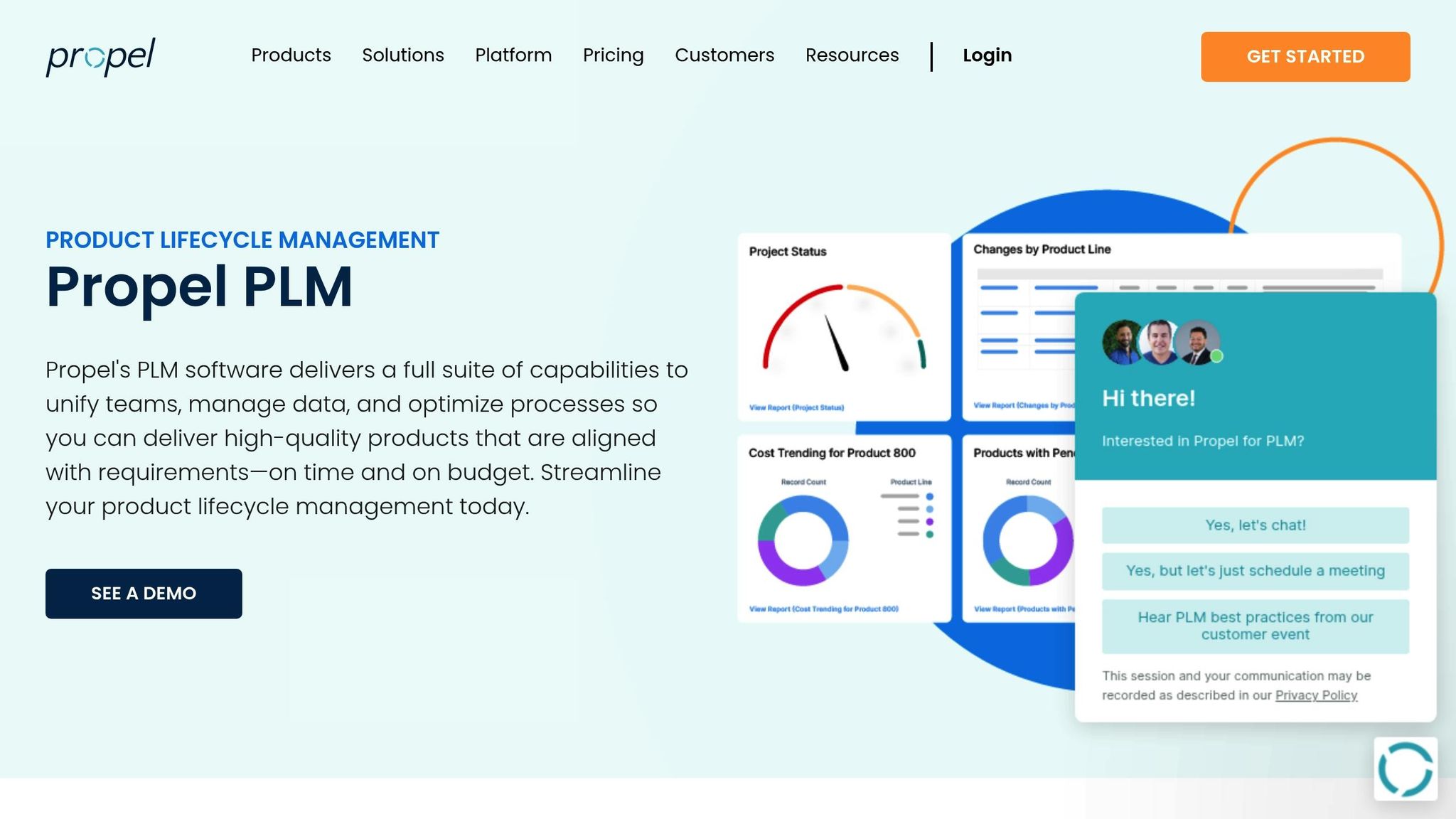
Propel PLM takes product lifecycle management to the next level by fully integrating into the Salesforce ecosystem. Unlike standalone applications, it operates directly within Salesforce, offering unparalleled security, scalability, and AI-driven insights without the need for additional platforms.
AI-Driven Features for PLM
Because Propel is built on Salesforce, it benefits from the platform's advanced AI capabilities. These tools analyze product data to uncover trends, identify design patterns, and even predict potential issues before they disrupt production. According to Aberdeen research, companies using real-time PLM dashboards can reduce time-to-market by 23%. Propel delivers on this by automatically generating dashboards that provide instant visibility into project progress, bottlenecks, and resource allocation, ensuring teams stay ahead at every stage of the product lifecycle.
Collaboration and Workflow Automation
Propel’s Product Value Management (PVM) platform combines PLM, Product Information Management (PIM), and Quality Management System (QMS) into one unified cloud-based solution. By eliminating data silos, it streamlines product development and ensures all teams are working with the same information. A 2024 CIMdata survey revealed that poor usability is a leading cause of PLM failures. Propel addresses this challenge by using familiar Salesforce-native layouts and providing intuitive in-app guidance, making adoption easier for teams already accustomed to Salesforce.
"Propel is able to extend that environment out and make sure that your partners are also operating from the same core system of record", says Jeff Faulkner, VP Operations at Samsara.
This seamless collaboration fosters better communication and ensures compliance with industry standards.
Compliance and Integration Capabilities
Propel excels in integration and compliance by leveraging flexible APIs, iPaaS partners, and Salesforce-native connections. It has even achieved "Built for NetSuite" status, validating its high integration standards. Compliance features include digital FDA submissions and tools for monitoring supplier compliance. Unlike traditional PLM systems that often require complex coding for integration, Propel taps into Salesforce’s AppExchange ecosystem, connecting to thousands of apps without custom development.
| Integration Type | Supported Systems | Key Benefits |
|---|---|---|
| ERP Systems | NetSuite, SAP, Oracle, Microsoft Dynamics, Rootstock | Real-time data sync, automated item masters, financial integration |
| CAD/PDM Tools | SOLIDWORKS, Autodesk, PTC Creo, Siemens NX | Streamlined engineering releases, design accuracy, cross-team collaboration |
| iPaaS Partners | Razorleaf, MuleSoft, Zapier, Jitterbit | Access to 8,000+ apps, standardized workflows, easier data migrations |
In September 2020, Propel showcased its real-time integration capabilities through an Express app. This app received Platform Event messages during Change Order releases, then used Propel’s REST API to retrieve Release Packages, including Bill of Materials and Approved Manufacturers Lists, for downstream ERP systems.
Pricing Transparency
Propel operates on a subscription pricing model, and specific pricing details can be obtained by contacting their sales team. Since it’s built on Salesforce, organizations can utilize their existing Salesforce licenses and expertise, potentially lowering the overall cost compared to standalone PLM solutions.
"Propel's PVM platform is beyond compelling. It's fundamentally essential to understand how our design impacts value", says Daniel Voit, CEO of Blentech.
For companies planning ERP integration, Propel recommends prioritizing real-time integrations to ensure accurate, up-to-date data. Organizations without internal development resources can reach out to Propel’s Account Managers for assistance with ERP integration partners.
9. Omnify Empower PLM
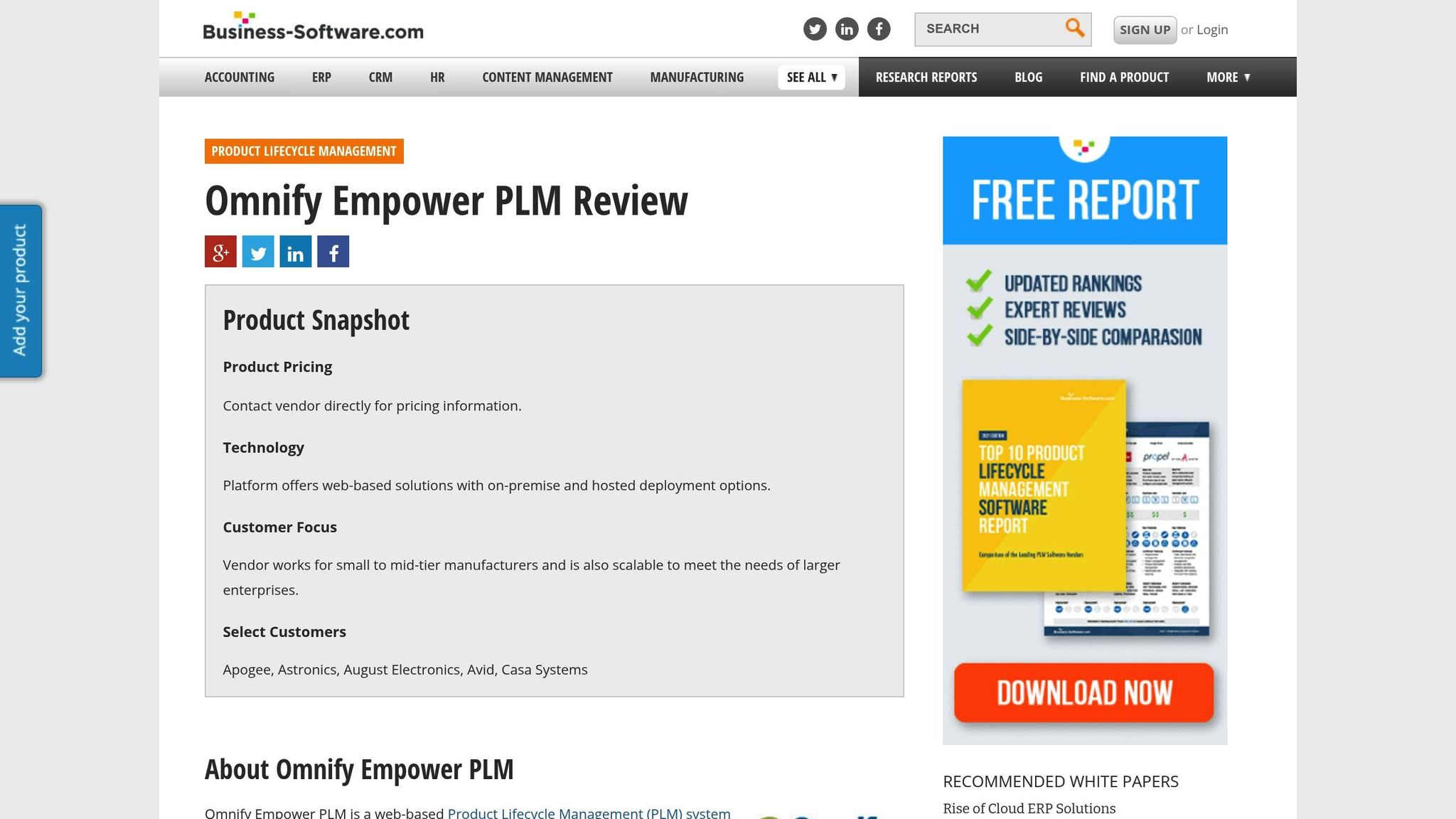
Omnify Empower PLM delivers a cloud-based solution tailored for manufacturing companies, focusing on simplifying workflows and improving efficiency. This platform handles tasks like automating repetitive processes and organizing documents, making it easier for manufacturers to manage their operations. To get a clear picture of its features - such as AI tools, collaboration capabilities, and compliance tracking - as well as pricing details, it’s best to consult the official vendor resources.
10. SAP Product Lifecycle Management
SAP Product Lifecycle Management (PLM) is designed to work effortlessly within SAP's extensive system, making it a powerful tool for large manufacturing companies. By centralizing data and using AI-driven analytics, it helps teams coordinate across departments more effectively. With features like predictive analytics and machine learning, SAP PLM streamlines processes like change management and quality assurance, allowing businesses to spot and address potential issues before they disrupt production schedules.
The platform's AI tools also handle tasks like automated document classification, smart workflow routing, and real-time performance tracking during every stage of product development. Since it integrates deeply with SAP's broader ecosystem, product data flows smoothly between manufacturing, finance, and supply chain operations. This creates a connected digital framework that supports better decision-making and minimizes operational disconnects.
Up next, see how Siemens Solid Edge PLM takes product development a step further with its specialized tools.
11. Siemens Solid Edge PLM
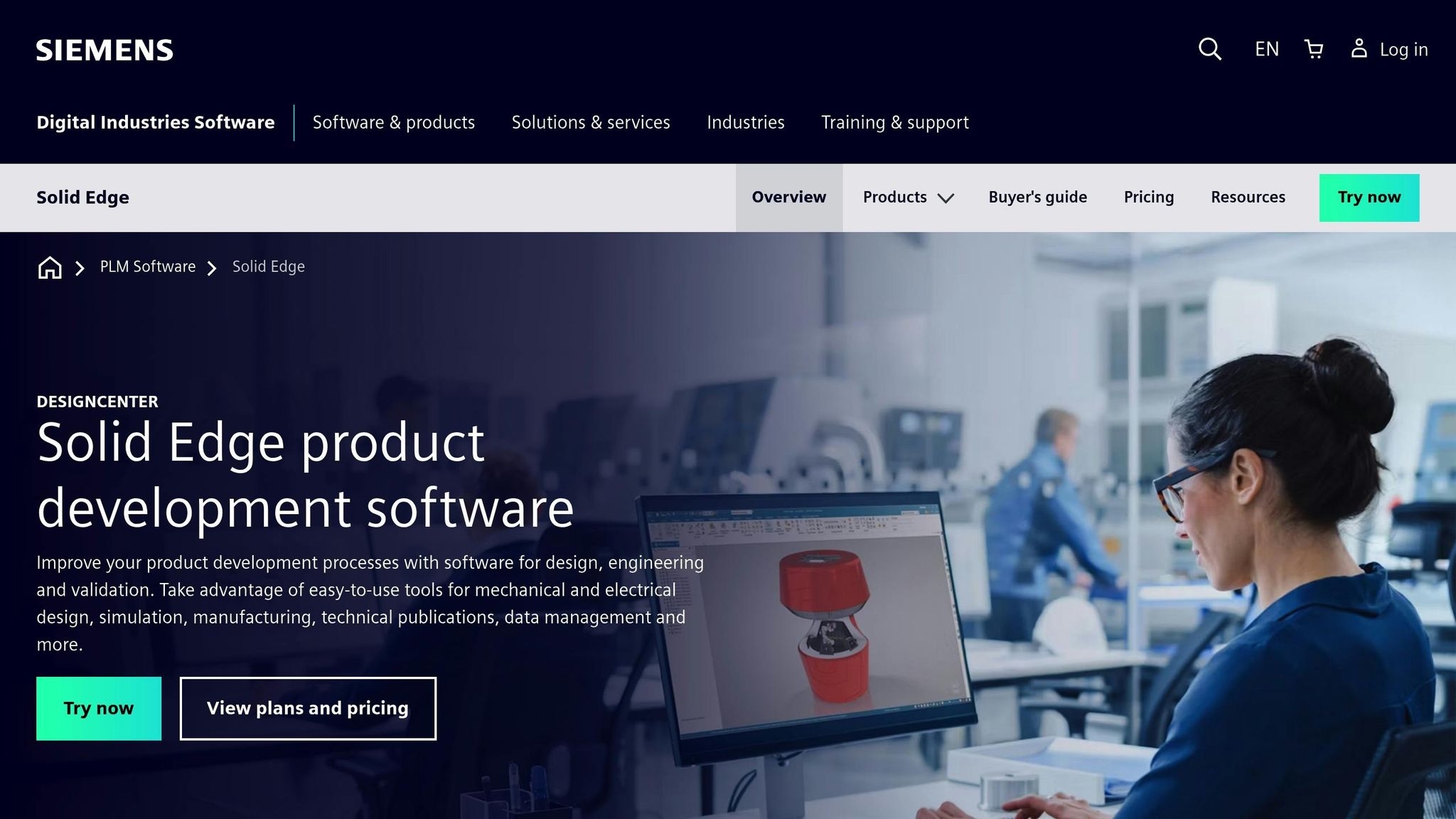
Siemens Solid Edge PLM combines traditional product lifecycle management with cutting-edge AI tools, offering a robust solution for modern engineering teams. The latest version, Solid Edge 2025, takes things further with its Solid Edge X SaaS environment, which integrates AI directly into the product development process. By using a cloud-based system, it simplifies IT management while equipping teams with AI-powered tools that improve efficiency and productivity. This approach reflects the growing trend of embedding AI into every stage of the product lifecycle.
AI-Powered Tools for Smarter PLM
Solid Edge 2025 includes real-time AI assistance designed to reduce disruptions during development. Its in-app guidance helps engineers quickly find essential information, saving time and effort. The Solid Edge CAM Pro module uses AI to recommend the best machining operations automatically, making toolpath creation more intuitive. These features also speed up modeling tasks and improve the design of advanced sheet metal components.
Streamlined Collaboration and Automation
With Solid Edge X, AI plays a key role in simplifying teamwork and managing data. It ensures teams stay updated with the latest changes and improvements, making collaboration smoother and more efficient.
Tool Comparison Chart
Here’s a quick comparison of key PLM tools, highlighting their features, pricing, and intended use cases. The table below includes verified details for God of Prompt. For other tools, make sure to check their official websites for accurate and up-to-date information.
| Tool | Key AI/PLM Features | Pricing | Best For | Pros | Cons |
|---|---|---|---|---|---|
| God of Prompt | Over 30,000 AI prompts for ChatGPT, Claude, Midjourney, and Gemini; includes a custom GPTs toolkit | Free basic access; Complete AI Bundle for a one-time payment of $150.00 | Small to medium businesses, marketing teams, and content creators | Extensive prompt library, lifetime updates, and a 7-day money-back guarantee | None noted |
| Siemens Teamcenter | – | – | – | – | – |
| PTC Windchill | – | – | – | – | – |
| Dassault Systèmes ENOVIA | – | – | – | – | – |
| Autodesk Fusion Lifecycle | – | – | – | – | – |
| Oracle Agile PLM | – | – | – | – | – |
| Aras Innovator | – | – | – | – | – |
| Propel PLM | – | – | – | – | – |
| Omnify Empower PLM | – | – | – | – | – |
| SAP Product Lifecycle Management | – | – | – | – | – |
| Siemens Solid Edge PLM | – | – | – | – | – |
Note: Information for God of Prompt has been verified. For all other tools, confirm details directly through the respective vendors.
PLM tools cater to a wide range of business needs, with variations in features, pricing, and scalability. God of Prompt sets itself apart with its straightforward pricing model and an extensive suite of AI-driven features, making it particularly appealing for marketing teams, content creators, and small to medium-sized businesses. Its lifetime updates and no-risk 7-day money-back guarantee further enhance its appeal.
When selecting a PLM tool, consider your organization’s size, industry requirements, and the complexity of implementation. Enterprise-level companies often prioritize platforms with advanced customization and integration options. On the other hand, smaller businesses may benefit from simpler, more focused solutions like God of Prompt, which can streamline workflows in areas like marketing, SEO, and automation.
For the most accurate and detailed information, always verify features, pricing, and integrations directly with the vendors.
Conclusion
The use of AI-powered tools in product lifecycle management is reshaping how businesses in the U.S. approach product development and operations. These technologies are becoming critical for staying ahead in an increasingly competitive market.
Take God of Prompt as an example. This platform offers over 30,000 specialized prompts that streamline workflows, helping teams enhance marketing, content creation, and automation throughout the product lifecycle.
On a larger scale, enterprise solutions like Siemens Teamcenter and SAP Product Lifecycle Management are revolutionizing every stage of product management - from design to end-of-life. These tools are enabling faster time-to-market, reducing development costs, and improving collaboration across global teams.
The "best" AI PLM tool, however, depends on the specific needs of a business. Small and medium-sized companies might find targeted solutions that address particular workflow challenges more effective. On the other hand, larger enterprises often require platforms offering extensive features and customization options. Choosing the right tool means aligning it with the unique goals and requirements of the organization.
As highlighted throughout this guide, adopting AI tools in PLM doesn’t just improve efficiency - it sparks innovation. Companies using these technologies can better respond to market shifts, optimize their resources, and meet changing customer demands, giving them a clear edge over competitors.
FAQs
How do AI tools improve collaboration and automate workflows in Product Lifecycle Management?
AI tools are reshaping Product Lifecycle Management (PLM) by bringing data together in one place, cutting down on repetitive tasks, and enabling real-time communication across teams. This means fewer delays, more precise decision-making, and smoother collaboration between departments.
By automating tasks like product development, compliance checks, and data analysis, AI allows teams to concentrate on bigger-picture strategies, boosting overall productivity. These tools also promote stronger alignment among stakeholders, ensuring every step of the product lifecycle runs efficiently and accurately.
What should businesses look for in an AI-powered PLM tool to ensure it meets their industry needs and organizational goals?
When choosing an AI-powered Product Lifecycle Management (PLM) tool, it's important to prioritize features that align with your specific industry needs. Look for tools that integrate effortlessly with your existing systems and offer capabilities like predictive analytics and automation to enhance productivity. The tool should also be easy to use, capable of growing with your business, and compliant with security and regulatory standards.
It's equally important to evaluate the vendor's experience, the overall cost of ownership, and how well the tool supports data-driven decision-making. Selecting the right PLM solution can simplify workflows, boost efficiency, and support your organization's long-term objectives.
How do AI-powered tools like God of Prompt enhance product lifecycle management compared to traditional systems?
AI-powered tools like God of Prompt are transforming how businesses manage product lifecycles. By leveraging artificial intelligence, these tools automate intricate processes, analyze data in real-time, and deliver actionable insights. Unlike older systems that rely on static lifecycle management, AI solutions support dynamic decision-making and encourage team collaboration across departments to meet evolving demands.
These tools simplify workflows by pulling data from multiple sources, enhancing precision, and shortening development timelines. This leads to a more streamlined and adaptable way of handling product lifecycles, giving businesses the edge they need to thrive in a fast-changing market.














